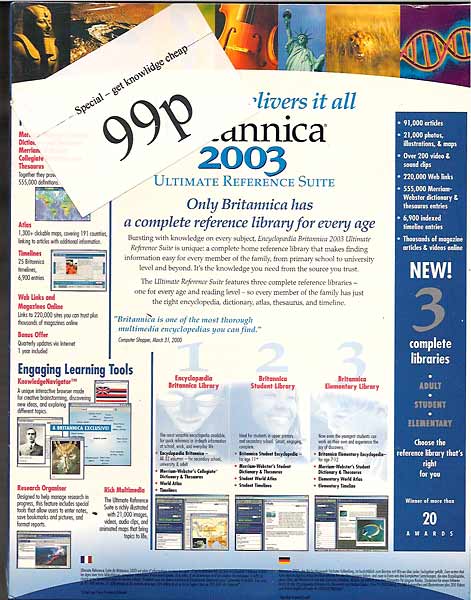I was looking at an announcement on the University of Edinburgh’s site about The British Academy Warton Lecture on Poetry, to be given this year on Yeats by his biographer Roy Foster. A distinguished event! I was interested looking to the bottom of the page to see links to the Wikipedia pages for both Yeats and Warton.
This seemed to me to show Wikipedia’s growing role as an addressable knowledge base. It makes further information about a topic available at the end of a URL. It relieves people of having to create their own context and background. As in this case, context, or condensed background, about Warton and Yeats is available for linking, relieving the developers of having to provide it themselves.
Condensed background is a phrase used by Timothy Burke, history professor at Swarthmore, and author of the Burn the catalog piece of some years back. I was rereading Burn the catalog earlier and was interested to come across his blog discussion of Wikipedia.
“I’m using Wikipedia this semester where it seems appropriate: to provide quick, condensed background on a historical subject as preparation for a more general discussion. Next week, for example, the students are having a quick look at the Malthus entry as part of a broader discussion of critiques of progress in the Enlightenment.”
And he goes on to comment on the Middlebury decision which is discussed in my post of the other day.
“Big deal. The folks at Middlebury are perfectly correct to say that students shouldn’t be using Wikipedia as an evidentiary source in research papers. That’s got nothing to do with Wikipedia’s “unreliability”, or the fact that it’s on the web, or anything else of that sort. It’s because you don’t cite an encyclopedia article as a source when you’re writing an undergraduate paper in a history course at a selective liberal-arts college. Any encyclopedia is just a starting place, a locator, a navigational beacon. I’d be just as distressed at reading a long research paper in my course that used the Encylopedia Britannica extensively. As a starting place, Wikipedia has an advantage over Brittanica, though: it covers more topics, is easier to access and use, and frankly often has a fairly good set of suggestions about where to look next.”
He uses Wikitedium in the title of the post, and I thought how apt an expression this was to characterize the periodic library discussions about Wikipedia which pitch authority against editorial permissiveness.
Wikipedia is a collection. Some entries are excellent, some less so. One cannot summarily judge its value in the way that one might have done when deciding whether or not to buy or recommend a reference book. Judgements about ‘authority’ and utility have to be made at the article level, and who has the time and expertise to flag individual articles in this way? Rather than continuing a tedious Wikipedia good/Wikipedia bad conversation, we should recognize the attraction it has as an addressable knowledge base, understand the variety of uses to which it is put, and remind folks of the judgments they need to make depending on those uses.

